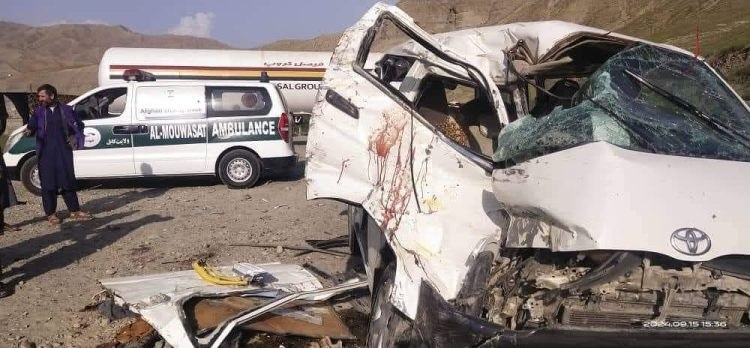RASC News Agency: Local sources in Helmand Province have confirmed that a catastrophic traffic accident has killed six members of a single family, once again exposing the lethal consequences of the Taliban’s chronic neglect of Afghanistan’s crumbling infrastructure. The deadly crash occurred on Friday evening in the Shorab area of Washir district an underdeveloped region where residents have long endured hazardous roads and a complete absence of safety oversight. According to local accounts, the victims three women, one child, and two men were all from the same family. Eyewitnesses said the impact of the collision was so violent that all passengers died instantly, with no chance of survival.
Despite the severity of the tragedy, the Taliban’s traffic authorities have yet to provide a detailed explanation for the accident. Residents, however, point to a familiar list of causes: decaying road surfaces, the total absence of warning signs, unregulated speeding, and a complete lack of road maintenance. These are not natural disasters, locals stress they are the predictable outcomes of years of state neglect and the Taliban’s deliberate refusal to invest in public safety. Helmand’s position along long, treacherous highway routes has made it a recurrent scene of fatal accidents. Unofficial data indicate that each year, dozens if not hundreds of Afghanistani citizens are killed or maimed in traffic incidents. Analysts argue that many of these deaths are preventable, but the Taliban’s priorities remain fixated on consolidating power and suppressing dissent rather than protecting civilian lives.
Observers note that beyond the disrepair of the road network, Afghanistan faces a critical shortage of driver education and a pervasive disregard for traffic laws. Under Taliban rule, there has been no significant investment in infrastructure rehabilitation, no installation of adequate signage, and no serious enforcement of traffic regulations. This governance vacuum has turned Afghanistan’s highways into corridors of death. This latest loss of life has reignited public outrage and demands for urgent reform. Many citizens are calling for the rebuilding and modernization of the nation’s transportation system, strict enforcement of traffic laws, and public campaigns to instill a culture of road safety. Yet, under a regime more concerned with ideological control than civic welfare, such demands risk being ignored leaving ordinary families to face the same fate as those lost in Helmand.






